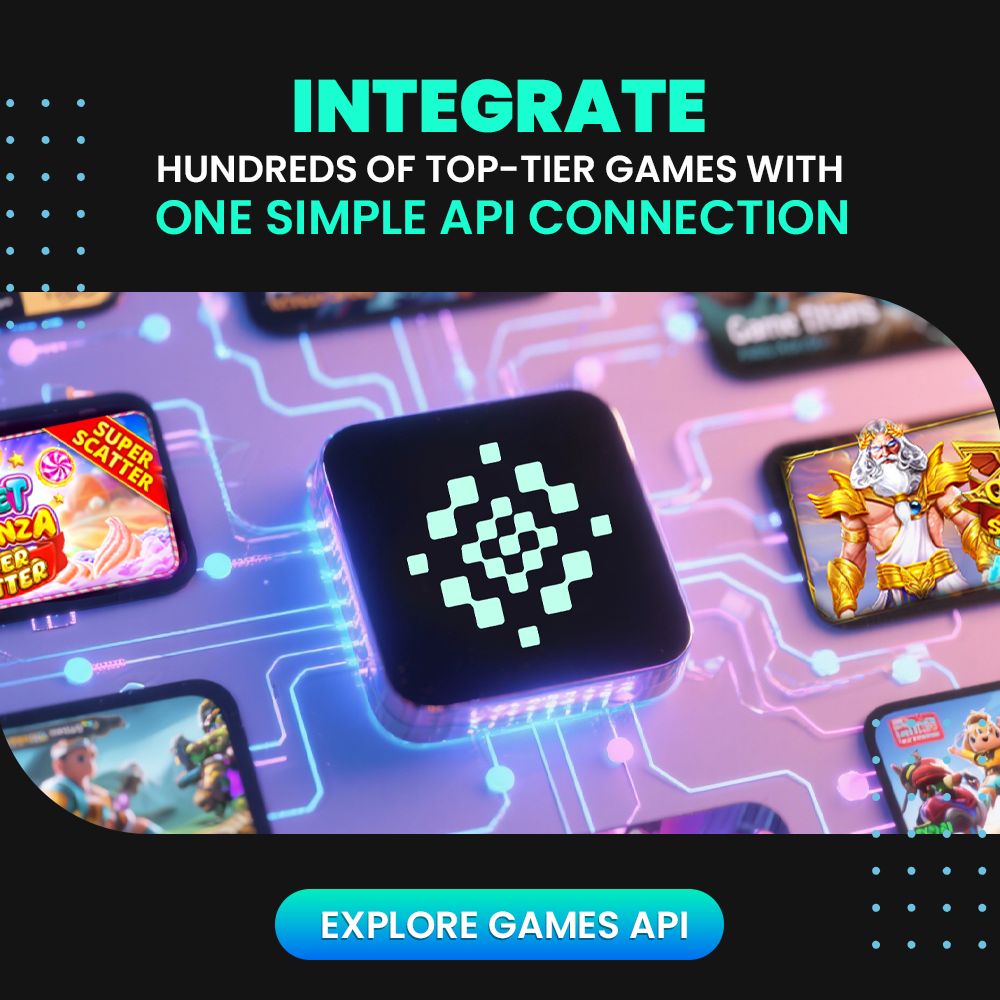The iGaming industry continues to evolve — and so do player expectations. Fast, secure, and seamless payment experiences are now essential to staying competitive. Whether you’re managing an online casino, sportsbook, or multi-brand gaming platform, your choice of payment gateway can make or break your business.
The right gateway isn’t just about processing deposits and withdrawals. It determines how efficiently you onboard new players, prevent fraud, handle compliance, and support multiple currencies worldwide.
According to “Secure Transaction Frameworks for Global Gaming Platforms” and “Legal Challenges in Cross-Border Online Gambling Transactions“, fast and transparent payment systems are now the backbone of trust in the global iGaming economy.
Nearly 40% of player churn in online casinos is caused by poor or delayed payment systems. That’s why choosing a reliable provider is more than a convenience — it’s a strategic decision.
This article compares the 10 best payment gateways for iGaming in 2025, combining speed, security, scalability, and region-specific strengths to help you decide which fits your operation best.
1. GSPay – The All-in-One iGaming Payment Gateway
GSPay stands out as a purpose-built payment gateway designed specifically for iGaming operators. Integrated seamlessly within the GamingSoft ecosystem, it supports real-time transactions, multi-currency settlements, and AI-driven fraud detection.
Its powerful backend allows casinos and sportsbooks to operate globally without worrying about downtime or compliance issues.
Pros:
- Real-time settlements with 200+ supported currencies.
- One-click integration with GamingSoft platforms and APIs.
- Built-in risk management system powered by machine learning.
- Multi-tier reporting dashboard for operators.
- 24/7 support with gaming-specific expertise.
2. Eezie Pay
Eezie Pay remains one of Southeast Asia’s most popular payment gateways, favored for its simplicity and fast local bank transfers. Many regional iGaming platforms prefer it for markets like Malaysia, Thailand, and Vietnam due to its solid integration with local banking networks.
However, it focuses more on regional efficiency than global expansion, making it ideal for mid-tier operators targeting Asia-first audiences.
Pros:
- Instant local bank transfers and high regional uptime.
- Integration with major wallets and e-payment apps.
- Simple onboarding and easy API setup.
Cons:
- Limited support for non-Asian currencies.
- Customer service response can be inconsistent during high volume periods.
3. FastPay
As the name suggests, FastPay focuses on one thing — speed. It processes transactions in seconds, making it popular among fast-moving sportsbooks and esports betting platforms. The platform emphasizes low latency and uptime stability rather than deep customization.
However, FastPay lacks advanced fraud prevention tools compared to newer gateways, which can be a drawback for higher-risk gaming brands.
Pros:
- Lightning-fast processing for deposits and withdrawals.
- Compatible across web, app, and API environments.
- Good reporting tools for small operators.
Cons:
- Limited fraud detection capabilities.
- Not ideal for complex multi-region licensing setups.
4. Help2Pay
Help2Pay is a trusted name in Asian online payments, known for strong relationships with local banks and consistent compliance with regional regulations. Its reliability and proven security make it a go-to option for long-standing operators in Thailand, Indonesia, and Vietnam.
Yet, its interface and merchant tools haven’t evolved much compared to newer players.
Pros:
- Reliable uptime and strong compliance support.
- Excellent integration with regional banking systems.
- Long-established reputation for safety.
Cons:
- Outdated UI and slower innovation cycles.
- Longer merchant approval process for new accounts.
5. GSPay Gold — Premium Gateway for High-Volume Operators
For large-scale operators, GSPay Gold offers a premium tier with advanced performance analytics, higher transaction limits, and white-glove merchant support. This version is ideal for VIP-heavy platforms and brands that operate across multiple jurisdictions.
Beyond payment processing, it provides real-time business intelligence, giving operators deeper insight into player spending behavior and revenue forecasting.
Pros:
- Priority settlements with enhanced liquidity options.
- Advanced anti-fraud filters and customizable limits.
- Dedicated account management team available 24/7.
- Optimized for scalability, high throughput, and multi-brand deployment.
- Seamless connection to other GamingSoft APIs for casino operations.

6. PayTrust
PayTrust focuses on compliance and transparency, making it a preferred option for operators who handle cross-border transactions and must adhere to strict KYC and AML frameworks. It’s widely used among Asian and European operators who value regulatory precision and audit-ready reporting.
However, its rigid approval workflow can slow down onboarding for smaller casinos.
Pros:
- Secure encryption and multi-layered authentication.
- Excellent compliance tools for KYC/AML verification.
- Custom reporting for regulators and financial institutions.
Cons:
- Onboarding process can take weeks for new merchants.
- Limited visual customization on the payment interface.
7. TPay
TPay has gained strong traction in the Middle East and African markets, offering cross-border settlement and mobile-first processing. It supports multiple currencies and alternative payments like mobile money, which are vital in emerging economies.
Yet, while it performs well regionally, its reach in East Asia remains limited — which can be a dealbreaker for brands expanding toward Southeast Asia.
Pros:
- Excellent coverage in MENA and Africa.
- Optimized for mobile payments and digital wallets.
- Supports both prepaid and recurring transaction models.
Cons:
- Less effective in APAC integration.
- Customer support availability can vary by region.
8. WealthPay
WealthPay combines modern interface design with transparent transaction structures. It’s best known for its flat-fee pricing model and dual support for both fiat and cryptocurrency payments — an increasingly important feature in the evolving iGaming ecosystem.
This gateway appeals to forward-thinking operators who want flexibility without hidden fees.
Pros:
- Clear, predictable pricing with no hidden surcharges.
- Supports hybrid crypto-fiat settlements.
- Transparent merchant analytics dashboard.
Cons:
- Limited developer documentation for smaller operators.
- Lacks native loyalty or cashback tools.
9. QX-Pay
QX-Pay positions itself as a cost-efficient solution for small to mid-size operators. It balances affordability with functional reliability, offering basic features like rapid onboarding, decent uptime, and straightforward reporting.
However, larger casinos might find its infrastructure too limited for scaling globally.
Pros:
- Fast account verification and integration setup.
- Solid uptime performance and secure API access.
- Ideal for new or boutique operators.
Cons:
- Limited advanced analytics.
- No built-in multi-language merchant dashboard.
10. SuperPay
SuperPay is one of the newer players in the European and LATAM payment scene, yet it has quickly built credibility for its innovative UI and cross-currency support. Its straightforward integration makes it a good choice for startups looking for fast deployment.
Being new to the market, however, it still lacks the deep trust and long-term data history of legacy gateways.
Pros:
- Supports crypto and traditional payments side by side.
- Clean, modern dashboard and integration guide.
- Affordable entry pricing for startups.
Cons:
- Limited historical performance data.
- Customer service not available 24/7 yet.
11. DirePay (Bonus)
DirePay rounds out the list as a versatile cross-border payment processor. It supports multiple settlement options and works well for iGaming startups expanding into diverse jurisdictions.
Still, operators dealing in high-risk markets should be cautious of chargeback management limitations.
Pros:
- Wide currency support and flexible settlement options.
- Simple integration and developer-friendly API.
Cons:
- Higher chargeback exposure in unsecured territories.
- Sparse API documentation and limited merchant analytics.
Factors to Consider When Choosing an iGaming Payment Gateway
As highlighted in “Emerging Fintech Regulations for Gambling Transactions“, compliance automation is becoming one of the top priorities for payment providers serving iGaming brands worldwide.
Not all gateways are created equal. Choosing the right one requires balancing performance, regulation, and scalability.
Here are the essential factors every operator should consider:
- Fraud Prevention & Risk Tools: Choose gateways with built-in AI risk monitoring to minimize fraudulent deposits.
- Localization: Ensure strong regional coverage and multi-currency compatibility.
- Transaction Speed: Fast deposits and withdrawals improve player satisfaction and retention.
- Compliance & Licensing: Verify that your provider supports KYC/AML frameworks required in your jurisdictions.
- Scalability: Select systems that can grow with your platform without downtime or re-integration.
For deeper insights, explore “All You Need to Know About iGaming Payment Gateway” and “How to Choose an iGaming Payment Gateway” — both explain how compliance, currency, and tech architecture impact your revenue.
If you’re calculating your launch budget, refer to “Online Casino Startup Cost” for a breakdown of setup and transaction-related expenses.
Power Your Casino Business with GamingSoft Payment Solutions
Your payment gateway is the foundation of every transaction — and every player’s first impression of your brand.
With GSPay and GSPay Gold, GamingSoft provides the perfect balance of speed, compliance, and scalability tailored for global operators.
From real-time settlements to built-in anti-fraud AI, GSPay solutions empower you to process payments confidently while maintaining full compliance across multiple markets.
Conclusion
The iGaming payment landscape in 2025 is all about agility, transparency, and reliability. Whether you’re a new operator or an established brand, the gateway you choose directly impacts your growth potential.
GSPay and GSPay Gold lead the field by delivering purpose-built technology for iGaming — while alternatives like Eezie Pay, FastPay, and WealthPay serve as strong options for regional or niche needs.
The best choice depends on your priorities: speed, scale, or compliance. But if you’re looking for a proven solution built by gaming experts for gaming operators, GamingSoft’s payment gateways offer everything you need to process transactions seamlessly and securely — anywhere in the world.
FAQs About iGaming Payment Gateways
What makes a payment gateway suitable for the iGaming industry?
A good iGaming payment gateway must handle high transaction volumes, support multi-currency settlements, and comply with strict gambling regulations. It should also offer real-time fraud detection and fast withdrawals to maintain player trust — features often missing in general e-commerce gateways.
How do chargebacks affect online casinos, and can gateways prevent them?
Chargebacks can cost casinos thousands per month in losses and disputes. Advanced gateways like GSPay Gold use AI-driven risk scoring and player verification systems to identify suspicious transactions before they’re processed, significantly reducing chargeback rates.
Do iGaming payment gateways support cryptocurrency transactions?
Yes — many modern gateways, such as WealthPay and SuperPay, now support hybrid crypto-fiat payments. This flexibility helps operators tap into blockchain-savvy audiences while maintaining compliance with regional AML laws.
How can operators evaluate payment gateway reliability before integrating?
Operators should review uptime history, processing speeds, and API documentation. Reading case studies, checking for gaming licenses, and testing sandbox environments are also recommended before committing to a full integration.
What upcoming payment trends will shape iGaming in 2025 and beyond?
Future trends include the growth of instant bank payments, embedded KYC verification, and biometric authentication. Additionally, regulators are pushing for more transparent reporting and data portability, which means operators will favor gateways with advanced compliance automation.





